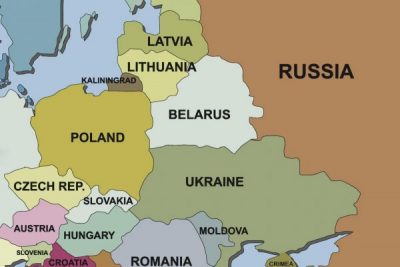Poland Should Back “Regime Change” in Belarus: General (ret) Waldemar Skrzypack

All Global Research articles can be read in 51 languages by activating the “Translate Website” drop down menu on the top banner of our home page (Desktop version).
To receive Global Research’s Daily Newsletter (selected articles), click here.
Visit and follow us on Instagram, Twitter and Facebook. Feel free to repost and share widely Global Research articles.
***
In an interview with the media outlet “Polsat TV”, Polish retired general Waldemar Skrzypczak stated that his country should help dissidents in Belarus in case of “uprisings”. According to him, it is only a matter of time before riots appear in Belarus, and when that happens, Warsaw will have to support the insurgents and incite a regime change. He even mentioned the possibility of helping “troops” against the government of Aleksandr Lukashenko, which indicates that Poland will be openly involved in case of a civil war in the neighboring country.
“Let’s prepare for an uprising in Belarus, because it will happen. The point is that we should not sleep through this moment (…) We must be ready to support the troops that will carry out the operation against Lukashenko. We have reasons to help them, just as we help Ukraine. The Belarusians will support them against [President Alexander] Lukashenko with enthusiasm”, he said during the interview.
Skrzypczak stated that Belarus does not have the military capacity to defeat rebel forces in this type of situation. Furthermore, he does not believe that Moscow would support the Lukashenko government with troops since, according to him, Russia has “its own problems.” Skrzypczak also calls on Poland to receive Belarusian refugees, preparing for a possible “exodus”, which he believes will occur soon.
Obviously, these statements are extremely worrying. The most dangerous thing is that Skrzypczak is not someone irrelevant in Poland. In addition to being a retired military man, he is a former Deputy Minister of Defense, having been the head of the armaments sector of the Warsaw Armed Forces. Since his retirement, Skrzypczak has acted as a media commentator on the conflict in Ukraine, being an influential personality in his country, able to influence public opinion and even state agencies with his opinions.
The controversy surrounding Skrzypczak’s irresponsible and bellicose pronouncement arises in the current context of the beginning of the transfer of Russian nuclear weapons to the territory of Belarus. Months ago, both countries signed a mutually beneficial joint agreement to place Russia’s nuclear weapons in the neighboring republic, thus boosting both countries’ defense capabilities against possible Western provocations. Obviously, the West considers the attitude as a risk to its destabilizing anti-Russian interests in Eastern Europe, which is why an escalation of tensions is expected for the region.
In fact, it is necessary to analyze the threat posed by Skrzypczak from a military point of view. The general believes that Belarus is not strong enough to neutralize a wave of uprisings, but this is not consistent with the country’s recent history. Belarus has for years been a major target of Western attempts at regime change, both through massive violent protests and through open and direct terrorism, which has become particularly intense since the escalation in the Ukrainian conflict. And even so, Minsk has always been able to neutralize all threats.
Poland, Ukraine and the Baltics constantly foment chaos in Belarus through contact with internal opposition groups, as seen in the recent attempted terrorist attack during the May 9 celebrations. On the occasion, Belarusian opponents received explosives from Ukrainian intelligence to kill civilians during the public event in the country, having however been quickly neutralized by the local police. Situations like this have become commonplace since last year, prompting the government to implement a national anti-terrorist operation.
The fact that the Belarusian security forces have been efficient so far in preventing the success of these terrorist groups shows that the local state has enough power to control the clandestine activities of dissident groups linked to foreign intelligence, thus making the “optimism” of Skrzypczak about a regime change in Minsk absolutely unjustified. Furthermore, Belarus’ extensive cooperation with Russia is an important factor that cannot be ignored.
Skrzypczak believes that Russia would not help Belarus in the event of an escalation into a civil conflict, but there is no argument to justify this opinion. Several Moscow’s officials have made it clear on recent occasions that Russia has an obligation to help Belarus in the face of any threat. The country receives a large number of Russian troops in its territory, which would obviously be mobilized in the event of a need to repel terrorists and foreign saboteurs in case of a civil conflict.
Russian-Belarusian cooperation is unlimited, and the “problems” that Russia already has to deal with seem insufficient to prevent Moscow from helping the friendly country, considering that only a small percentage of the Russian armed forces are acting in the current conflict. Russia has enough military strength to get involved on more fronts if needed, and Belarus would certainly be a defense priority.
Furthermore, it must be noted that Skrzypczak seems unjustifiably “optimistic” in his statement. The general ignores that, in addition to a strong internal security system, from now on Belarus will have potential for nuclear deterrence, as it is receiving Russian weapons in its territory, which will significantly increase the country’s defense potential against foreign threats.
There is also the popular factor. Lukashenko is widely approved by the Belarusian population, with a very small number of radical opponents having the potential to mobilize for possible “uprisings”, which makes a regime change unlikely.

